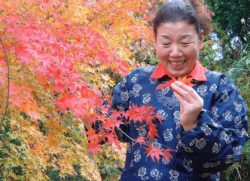Who is Uesugi Yozan?
CONTENTS
Uesugi Yozan, admired by today’s business leaders
By Ryoji Shimada
Uesugi Yozan (1751-1822) has been well-known until today as an enlightened leader who rebuilt his straitened regional government through various reforms and projects. He is a feudal lord during the Edo era (1603-1867) who governed Yonezawa han which is located in present-day’s Yamagata Prefecture. Han is the name of the territory belonging to a feudal lord with an agricultural output assessed at 10,000 koku or more. There were about 300 hans throughout the country. One koku was generally viewed as the equivalent of enough rice to feed one person for a year. Han had a degree of sovereignty and was allowed an independent administration to some extent in exchange for loyalty to the Tokugawa shogunate or Edo bakufu (central government).
When Yozan became the daimyo (head) of Yonezawa han, the territory was 150,000 koku, but the large budget for vassals and courtiers’ salaries did not change, which pushed the han into financial difficulties. This was also compounded by a famine. Yozan embarked on major reforms to eliminate waste and cut costs, while punishing the chief vassals who opposed them. In order to revive the devastated agricultural communities, Yozan promoted the cultivation of farmland as well as industries such as lacquer ware and sericulture.
"You Won's Succeed Unless You Try"
Among the wise sayings he left is, “For all things, try and you will succeed; do not try and you will not succeed. Lack of success is merely due to lack of trying.” This saying is so famous that even people who do not know Uesugi Yozan are aware of it. Someone who admires this saying and respects Yozan is Osamu Masuko, president of Mitsubishi Motors Corporation. It is said that Mitsubishi Motors’ recovery plans overlap in parts with the reforms enacted by Uesugi Yozan to rebuild Yonezawa han, which had fallen into financial crisis.
Affected by neglecting to report a vehicle recall and the failure of its North American operations, Mitsubishi Motors recorded a consolidated loss of 215 billion yen for the period to March 2004. Refused aid by its major shareholder, Daimler Chrysler, Mitsubishi Motors instead received a total of 1,000 billion yen in aid from the Mitsubishi Group and investment funds. Osamu Masuko, who assumed the position of president in January 2005, narrowed down the vehicle lineup and reduced costs. By March 2007 Mitsubishi Motors had achieved its aim of posting a current income in the black, and continues to operate in the black to this day.
President Masuko said the following in a magazine interview: “When I assumed the position of president, Mitsubishi Motors had fallen into financial crisis. The company was pursuing an enlargement strategy that didn’t correspond to its operational resources, while the recall problem had eroded trust in the company in Japan. Yozan started by conveying the current reality without concealing anything. He established goals that clarified the purposes of carrying out reform, which boosted the morale needed for everyone to co-operate. I also began by going around Mitsubishi Motors’ manufacturing facilities to convey what was happening at head office and how head office had gotten into that state. After that, I aimed to entrench an ‘in the black’ culture based around two poles: restoring trust and improving earnings. Yozan mentions the words “Self-help, mutual aid, assistance.” To give an example of self-help at Mitsubishi Motors, at the outset of the company’s reconstruction, female employees at Mitsubishi’s Mizushima plant went into the streets to hand out pamphlets detailing their own ideas along with candies – even though that wasn’t part of their work duties. This also spread to the Okazaki plant and the head office (at the time) in Shinagawa. Furthermore, to give an example of mutual aid and assistance, Mitsubishi Motors switched from the vertical structure of development-production-sales-retail it had previously used to a culture of mutual departments co-operating together. ‘For all things, try and you will succeed; do not try and you will not succeed. Lack of success is merely due to lack of trying’ – those are the famous words that Yozan intoned. The attraction of Yozan is that he was passionate about reform and combined kindness with strictness. While he held humanitarian beliefs toward ordinary people, on the other hand, he was very strict on any forces of resistance that clung to vested interests. Reform is inevitably accompanied by pain – that’s why you can’t succeed without some mutual acceptance.”
Uesugi Yozan and Matsushita Konosuke Popular As a Role Model
Even today, Yozan is still a popular historical figure in the business world. His writings on leadership and management including a book by Konosuke Matsushita are often quoted as well.
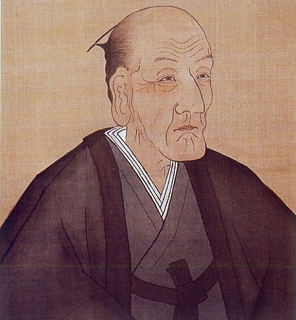
Some people say that John F. Kennedy, the 35th president of the United States, grew to genuinely respect Yozan after reading a copy of Representative Men of Japan, by Kanzo Uchimura. The book, which was published in English in 1908, introduces five great men of Japan, including Yozan. Kazuo Inamori, the founder of Kyocera Corporation and KDDI Corporation, who recently worked on the reconstruction of JAL, said the following in the foreword to a translation of the book published in 1999: “I believe their lives represent a certain set of universal human values. Learning about the lives of these five great men is one way to discover what it should mean to be truly human. Compare their lives with your own, and you may be able to live a more meaningful life.” So what kind of man was Uesugi Yozan, who had such an influence both domestically and overseas, and is still followed in the business world? The passages below introduce Yozan by way of an excerpt from Kanzo Uchimura’s Representative Men of Japan.
The Man and the Work of Uesugi Yozan
Yozan was a mere lad of seventeen when he came to the inheritance of the territory of Yonezawa. Born of the Akizuki family, a rather inconsiderable daimio of Kyushu, he was adopted by the Uesugi, higher in rank and larger in territorial possession. Yozan was adopted because the previous head, Shigesada didn’t have a successor. Adoption was a common practice to succeed a han. In a way, it was governed much like a private company now.
That saying of a Chinese sage “Be ye as tender to your people as to a wound in your body” seemed to have impressed him to the very bottom of his heart, and the text became to him his own, and guided him in all his future dealings with his people.
He sent in the following oath to the temple of Kasuga, his guardian god through his life:
- The exercises, literary and military which I have prescribed to myself shall I pursue without negligence.
- To be a father and a mother to my people shall be my first and chief endeavor.
- The words that follow shall I not forget day and night: “No extravagance, no danger. Give in charity, but waste not.”
- Inconsistencies of words with actions, injustice in reward and punishment, unfaithfulness and indecency, — from these shall I diligently guard myself.
The above shall I strictly observe in future, and in case of my negligence of the same, let divine punishment overtake me at once, and the family fortune be for ever consumed.
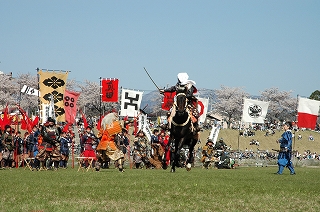
His adopted clan of Uesugi was one of the most powerful in the whole country, counted among the five great daimios of the country. Through its siding with the anti-Tokugawa party in the battle of Sekigahara (1600), the seat of the clan was again removed, this time to an out-of-the-way district of Yonezawa with the reduced revenue of 300,000 koku. Then to make bad worse, the revenue was once more cut oft’ one half, and when Yozan came to be the chief, the Uesugi was a daimio of 150,000 koku, with subjects once supported by 1,000,000 koku, and all the habits and practices established upon the latter basis. We need not wonder, therefore, when we hear that the new territory scarcely supported the clan, that its debts amounted to millions, that taxes and exactions scared off the population, that penury and destitution prevailed everywhere in the district. Yonezawa is in the southern part of the province of Uzen, has no sea-coast, and in its fertility and natural resources, ranked very low in the country. The whole made the case a most hopeless one, and the dissolution of the clan, and the bankruptcy of the people under its protection, seemed to be inevitable at no distant future.
The boy Yozan’s business was first to put a stop to this state of things, then to restore it to something of tolerability, and if his guardian god of Kasuga would bless him more, to make of his territory an ideal state as laid out by philosophic sages of old.
The Administrative Reforms by Uesugi Yozan
Financial Reform, Cost-cutting, Right Men in Right Places
Men are natural enemies of changes, in Japan as elsewhere. Young Yozan must effect changes, else salvation was impossible. But changes in others must begin with changes in one’s own self. Naturally, finance was the first question to be settled. Only by the utmost frugality could it be restored to anything like order and credit. The chief himself would curtail his family expense of 1050 pieces of gold to 209 pieces, He would keep only nine maids in his household instead of fifty as before; would wear nothing but cotton stuff, and would eat no more than soup and one dish at a meal. His subjects were to be likewise economical, but not in the proportion he himself would be. The annual allowances were reduced one-half; and the savings thus realized were to be used to liquidate the accumulated debt of the clan. This state of things must continue for sixteen years before the clan could be free from its pressing obligations! This is, however, only the negative aspect of the finance reform.
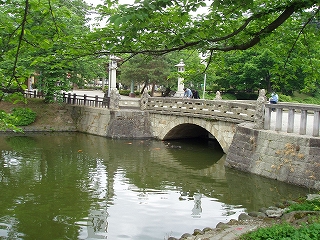
“The people’s happiness is the ruler’s wealth.” “As well expect an egg-plant fruit from a cucumber-vine as to look for wealth from misgoverned people.” And no good government is possible without right men in right places. And men he would have by all means, though the hereditary nature of the feudal government was against his democratic idea of “a man according to his abilities.” Out of his impoverished treasury he paid very liberally to men of ability, and these he placed over his people in three distinct capacities. First, there were the governor and his sub-officers who were general supervisors, “fathers and mothers of the people,” taking upon themselves all the duties of the general administrative affairs of the little state. To these one of Yozan’s injunctions read as follows:
“The child has no knowledge of its own; but she who mothers it understands its needs and ministers thereto, because she does this from her sincere heart. Sincerity begets love, and love begets knowledge. Only be sincere, and nothing is unattainable. As is the mother to her child, so must the officer be to his people. If but the heart that loves the people lies in you, you need not lament the lack of wisdom in you.
The second class of his officers were a kind of itinerant preachers who were to teach the people in morals and ceremonies, “of filial piety of pity toward widows and orphans, of matters of marriage, of decency in clothing, of food and ways of eating, of funeral services, of house-repairs, etc.” The whole territory was divided into twelve districts (dioceses) for this purpose, each with a presiding teacher (lay-bishop) over it. These bishops were to meet twice a year for mutual conference, and to make occasional reports to the chief of the progress of their work among the people.
The third class were policemen of the strictest kind. They were to detect the people’s vices and crimes, and to punish them severely for their just dues. Mercy they were to show none, and every nook and corner of villages and towns was to be carefully investigated. It was a diocese’s shame to produce offenders, and every preacher took upon himself responsibilities for the troubles his district gave to the police. Yozan’s injunction to the two classes of officers was as follows: “Go with jizo’s (地蔵) mercy, preachers, but forget not to carry fudo’s (不動) justice within you. Show emma’s (閻魔) justice and righteous wrath, police; but fail not to store jizo’s mercy in your bosom.” The three functions together worked admirably. His general administrative policies went out through the governor and his subsidiaries. But Yozan says, “To rule a people that is not taught is costly and ineffectual.” And such teaching was furnished by his lay-bishops, to give “life and warm circulation to the whole.” But teaching without discipline is also ineffectual. Hence the strictest police system to make the teaching more effectual, and the mercy shown, more conspicuous. The young lord must have had no little insight into human nature to have enabled him to frame such a system for governing mankind.
The Industrial Reforms by Uesugi Yozan
Yozan’s industrial policies were two: (1) to leave no waste places in his territory, (2) and no idlers among his people. Though not naturally fertile, he thought he could make his land give 300,000 koku instead of 150,000, by sheer industry on his and his people’s part. Agriculture he encouraged therefore with his whole heart.
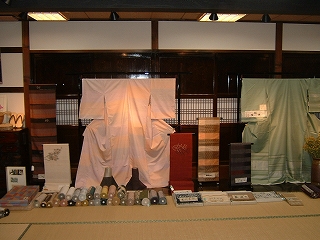
His samurai he turned into farmers in time of peace, and recovered thousands of acres from desolation and wilderness in that way. He ordered lacquer-trees to be extensively planted. Every samurai family was required to plant 15 nurslings in its yard; every family other than samurai, 5 ; and every temple, 20 within its enclosure. For every one tree that was planted above the required number, the reward of twenty cents was given; and for every one that died and was not replaced by another, a fine of the same sum was required. Over one million nurslings of this valuable plant were thus planted in his territory within a very short period, — a matter of very great consequence to the posterity. A million more of kozu (paper-plants) were planted in those places which allowed of no cultivation. But Yozan’s chief aim was to make his territory one of the greatest silk-producing districts in the land. For this a fund was required which his impoverished treasury was not able to supply. He therefore cut fifty more out of the two hundred and nine pieces of gold which he had reserved for his family expenses, and did with it as much as he could to forward this industry among his people. The young chief says (Yozan), “Slender means is a large sum if long continued.” So he continued for fifty long years, till the few thousands of mulberry stocks he had commenced with propagated themselves, and his whole territory had no more space left for them. The Yonezawa district of today and its splendid silk-produce testifiy to the patience and benevolence of its ancient chief. The Yonezawa brand now ranks highest in the market.
Still waste lands remained in his territory. In a rice-producing country like Japan, fertility means abundance of water-supply, and insufficient irrigation leaves large portions of land in comparative sterility. Conveyance of water through long distances seemed an impossibility with Yozan’s exhausted treasury. But frugality with him meant no parsimony. “Give in charity, and waste not,” was his motto. When public welfare was assured, he could think of no impossibility, for he had patience to make up the lack in his means. So it was that the poorest of daimios projected and completed two of the most stupendous engineering works ever undertaken in Old Japan. One was the conduction of water for a distance of twenty-eight miles through viaducts and long and high embankments, all of which are master-pieces of hydraulic engineering. The other was the turning of the water-course of a large stream through a tunnel, 1200 feet of which was through solid rocks. This latter work took twenty years of Yozan’s administration, and is by far the most important of his services to his territory. Among his subjects he had one Kuroi, a slow speechless man, passing for a good-for-nothing still the chief found out his usefulness. The man was a mathematician of the rarest ability. With his rude instruments he made careful surveys of the territory, and planned out the works, which to his contemporaries, appeared like real madness. He completed the first, and died while engaged in the second. The work was continued nevertheless following the plan laid out by him; and twenty years after its commencement, the tunnel was bored through from both ends, the lower section meeting the upper four feet below the latter, — a wonder of accuracy in calculation when the transit or the theodolite was an unknown instrument in the land. Deserts began to blossom, and fertility flowed in abundance into Yozan’s territory. Yonezawa alone of all northern provinces knows of no draught to this day. That nothing might escape the solicitous attention of the chief for his peopled welfare, he imported improved breeds of horses, stocked ponds and streams with carps and eels, invited miners and weavers from other provinces, removed all the commercial obstructions, and endeavored to develop in every way all the resources of which his territory was capable. These with his extermination of idlers from among his people, and their conversion into useful laborers, brought about changes such that the once poorest district in the land became a type of productivity near the close of his life, and has continued so ever since.
The Social and Moral Reforms by Uesugi Yozan
One beautiful feature of oriental knowledge is that it has never treated economy apart from morality. Wealth with their philosophers is always the effect of virtue, and the two bear the same relation to each other that the fruit bears to the tree. You manure the tree, and the result will surely be fruit without your effort. You “fertilize love to the people,” and wealth will be a necessary outcome. “Therefore the great man thinks of the tree, and he hath the fruit. The small man thinks of the fruit, and he hath it not.” Such was the Confucianism indoctrinated into Yozan’s mind by his worthy teacher Hosoi.
In this lies the grandeur of all of Yozan’s industrial reforms that his chief aim was to make virtuous people out of his subjects. The hedonistic view of happiness was repugnant to his idea. Wealth was to be had that all might be made “decorous people” thereby, for, said the ancient sage, M Decorum is known only when life’s necessities are had.” Remarkably free from the conventionalities of the time, he aimed to lead his heaven-entrusted people into “the ways of man,” alike binding on the daimio and the tiller of the soil. Some years after he came to his office, when his other reforms were fairly set a-going, he revived the clan-school long in suspense, and named it Kojokan, or the “Institute for the Promotion of Humility,” very expressive of the dominant virtue he had in view.

Of his purely social reforms, we have space for but two of them. His abolition of public prostitution was in entire accordance with his views of “administration of love.” To the usual objection that thus might be cut off a channel for the vile passion to spend itself, and endanger social purity in other and more heinous ways, his plain answer was, that “if the passion is to be thus allayed, no amount of prostitution is enough for the purpose.” He had it abolished, and could keep it abolished without any social inconvenience whatever.
What is the Ideal Community: Go-Ju-Kumiai
His instruction to the farming class, — by far the most important in his dominions—on u the Institution of the Associations of Five and Ten “(Go-Ju-Kumiai) is so characteristic of his ideal of the perfect state that we give it here entire, keeping ourselves as close to the original as possible.
“The farmer’s mission is in soil (農, tillage) and mulberries (桑, silk-raising). Diligent in these, he feeds his father and mother, wife and children, and gives his dues to the government to have its protection. But ail this is possible by the mutual dependence of one upon another, for which purpose associations of some kind are necessary. Not that you had them not already, but as we hear of none that can be thoroughly depended upon, we herein institute anew the Associations of Five and Ten and the Associations of Five-Villages as follows:
- The members of the Association of Five (Only heads of families were counted. The rest, the same) should be in constant intercourse one with another, share the joys and sorrows of each, as do the members of one and the same family.
- The members of the Association of Ten should have frequent intercourse, one with another, and bear to the family affairs of each, a tie equal to their blood relationship.
- They of one village should be like friends in helping and serving one another.
- The villages that constitute the Association of Five Villages should help one another in time of troubles, as befit true neighbors in all such cases.
- Be ye thus kindly disposed one toward another, and fail not. If there is one among you who is old and has no child, or is young and has no parents, or is poor and cannot adopt sons, or is widowed, or is a cripple and cannot support himself, or is sick and has no means of help, or is dead and is left without burial, or has met fire and exposed to rain and dew, or if by other calamities his family is in distress, — let any such who has no one else to depend upon be taken up by his Association of Five, and be cared for as its own. In case it lies not in the said Association’s power to succor him, let his Association of Ten lend him its help. If his case is more than the latter can do for him, let his village see to the removal of his distress and make possible his existence. Should some calamity overtake one village so that its existence is endangered thereby, how can its neighboring villages stand aloof without extending help to it? The four of the Association of Five Villages should give it willing salvation.
- To encourage the good, to teach the bad, to promote temperance, to check luxury, and so to enable each to abide in his mission, — these are the aims for which these associations are formed. If there is one who neglects his farm, or follows not his trade and runs to other employments, or indulges in dances, theatres, banquets and other laxities, such and such like should have peremptory admonition, first of his Association of Five, and then of Ten ; and in case he is still refractory, he must be privily reported to the village authority and receive due treatment.
Not much of officialism in all these; yet we declare we never have seen the like of them promulgated and put into practice in any other portion of the globe except in Yozan’s dominion of Yonezawa. What is called the farmers’ guild in America and elsewhere is nothing more than an industrial cooperation, with selfishness as its main motive. We should go to the Apostolic Church itself to find anything like our chiefs Associations of farmers.
With his polices and lay-bishops, schools and various “instructions,” and above all, with his own example, he molded his society of 150,000 souls to his ideals slowly but effectively. How far he succeeded in so doing can be seen by the following few extracts from an account of his dominion given by a well-known scholar, Kuranari Ryucho, who went there for the special purpose of observing u how the saint rules his people.”
“In Yonezawa there is what they call the Label-Market. Away from the habitations of men, by the side of public roads, sandals, shoes, fruits and other articles are exposed for sale with their prices labeled upon them, and their owners all absent. Men go there, leave the prices as marked, fetch the goods, and pass on, and nobody imagines that any stealing may be done in these markets.
“In Lord Yozan’s government, the men highest in office are usually the poorest. R — is his prime minister, and no body can compare with him in the chiefs favor and confidence. Yet, as I observed his ways of living, his food and raiment reminded me of those of a poor student.
“The dominion has no custom-houses and all such obstructions to free commerce on its borders, and yet no smuggling is ever attempted.” Let not our readers imagine that we are writing here an idyl about some mythic land of unknown ages. The things of which we write were practical realities; not yet one hundred years have passed since they were enacted in a well-known portion of this globe; and if they are no more realities such as they were in the days of their great enactor, their after-influences are distinctively readable in the place where they were tried, and among the people who practiced them.
Sidebar: Who is Uchimura Kanzo? – Christian but Praising Feudalism
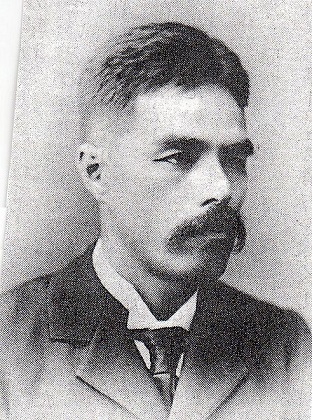
Uchimura Kanzo (1861-1930) was a Japanese Christian evangelist and also an author, philosopher and critic. In 1877, he entered the Sapporo Agricultural College (present-day Hokkaido University), where William S. Clark taught agricultural technology and introduced his students including Kanzo to the Christian faith through Bible classes. As a journalist, his pacifist views and vocal opposition against the Russo-Japanese War were shown in his newspaper columns. He is also a precursor to what is now called the Nonchurch Movement. Through Clark’s teaching and example, the followers could practice and live an authentic life of faith without depending on an institution or clergy.
He is a firm believer in Christianity but in this book, he praises feudalism.
“Feudalism has had its defects, and for those defects’ sake, we had it exchanged for Constitutionalism. But we fear the fire that was intended to burn rats burned the barn also, and together with Feudalism has gone away from us loyalty, chivalry, and much of manliness and humanness connected with it. Loyalty in its genuine sense is possible only when the master and the subject are in direct contact with each other. You bring a “system” between the two, and loyalty is not, as the master is now no more a master but a governor and the subject no more a subject but a people. Then come wranglings for constitutional rights, and men go to parchments for settling their disputes and not to hearts, as they used to in days of old. Self-sacrifice and all its beauty come when I have my master to serve, or my subject to care for. The strength of Feudalism lies in this personal nature of the relation between the governor and the governed.” He, then, introduces Uesugi Yozan as the embodiment of this ideal form of government.

